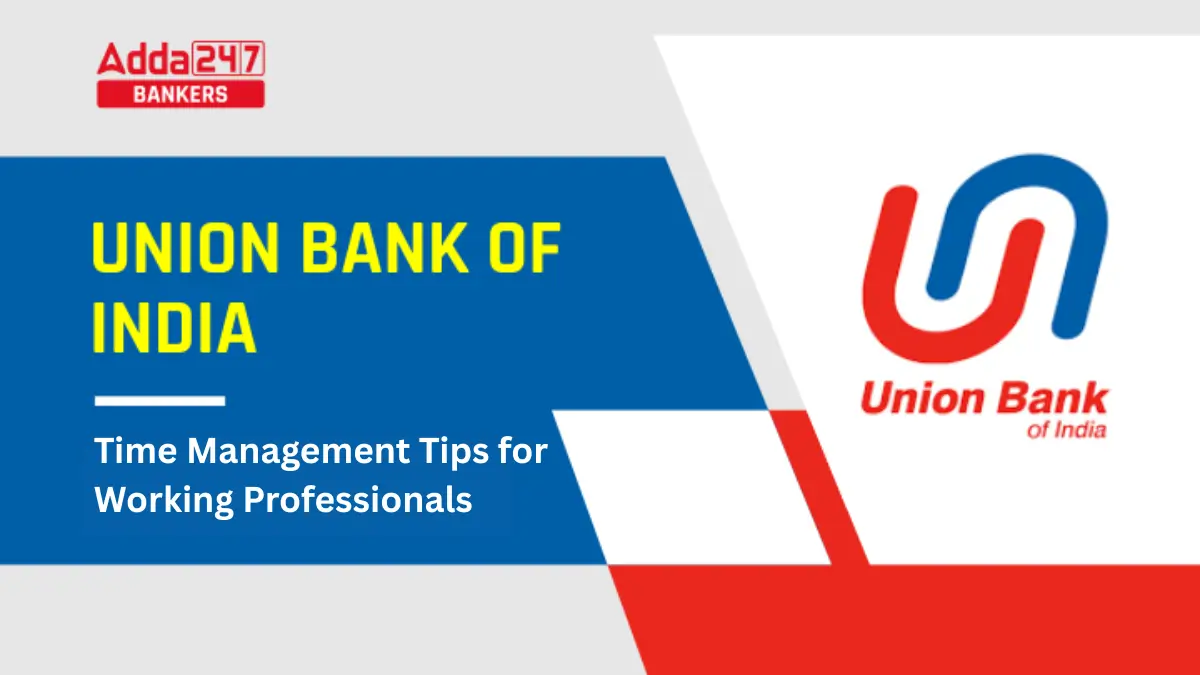Preparing for the Union Bank Specialist Officer (SO) Exam while working full-time can be a big challenge. But with proper planning and smart time management, you can balance your job and studies smoothly. The competition is tough and demands consistent preparation over weeks or even months. Managing both work pressure and exam stress can be tiring without a structured approach. Many working professionals give up midway due to lack of time or motivation. But with the right mindset and routine, it is possible to crack the exam without leaving your job.
Time Management Tips for Working Professionals Preparing for Union Bank SO Exam
Many candidates feel that working full-time leaves them with no space to study, but the truth is, even 2 to 3 hours a day can bring great results if used wisely. The key is not how much time you have, but how well you use it. With a clear plan, strong determination, and small daily efforts, you can cover the entire syllabus and stay confident. Below are some practical time management tips that will help you prepare for the Union Bank SO Recruitment 2025 Exam while handling your job responsibilities.
Make a Realistic Daily Study Plan
You don’t need to study for long hours. Instead, aim for 2 to 3 hours of focused study daily. Choose time slots that work best for you early morning before work or after dinner. Keep your plan simple and practical so that you can follow it every day.
Use Weekends Smartly
Weekends are golden for working professionals. Use them for mock tests, revision, and covering difficult topics. Plan longer study sessions on Saturdays and Sundays to make up for busy weekdays.
Set Weekly Goals
Break your syllabus into small parts and set weekly targets. This keeps your preparation on track and gives a sense of achievement. Avoid overloading any single day. Stay flexible but try not to skip your goals.
Study on the Go
Use travel time or lunch breaks to revise or listen to short audio notes. Download PDFs or mobile-friendly study apps so you can use even 10–15 minutes to review important formulas or concepts.
Avoid Distractions
Limit your screen time on social media and OTT platforms. Set a specific time for relaxation but don’t let it eat into your study time. Keep your phone on silent mode while studying.
Take Mock Tests Regularly
Mock tests help you know your strong and weak areas. Take at least one full mock test every week and analyze your performance. This also improves your speed and accuracy, which is very important in the exam.
Revise Frequently
Keep at least 30 minutes daily for revision. Revising helps in retaining what you have already studied and builds confidence. Use short notes, charts, or flashcards for quick reviews.
Don’t Neglect Your Health
Get enough sleep, eat healthy, and take short breaks to refresh your mind. A healthy body and calm mind help in better concentration and stress management.
Stay Motivated
Keep reminding yourself why you started this journey. Talk to someone who has cleared the exam. Celebrate small wins and stay positive throughout your preparation.
| Related Posts | |
| Union Bank SO Syllabus | Union Bank SO Salary |
| Union Bank SO Previous Year Question Papers | Union Bank SO English Language – Tips to Score High |





 Daily Current Affairs Quiz 3rd March 202...
Daily Current Affairs Quiz 3rd March 202...
 Last Chance, Big Win: Dinesh Kumar’s SBI...
Last Chance, Big Win: Dinesh Kumar’s SBI...
 From Zero to Hero: Chandan’s Journey to ...
From Zero to Hero: Chandan’s Journey to ...









